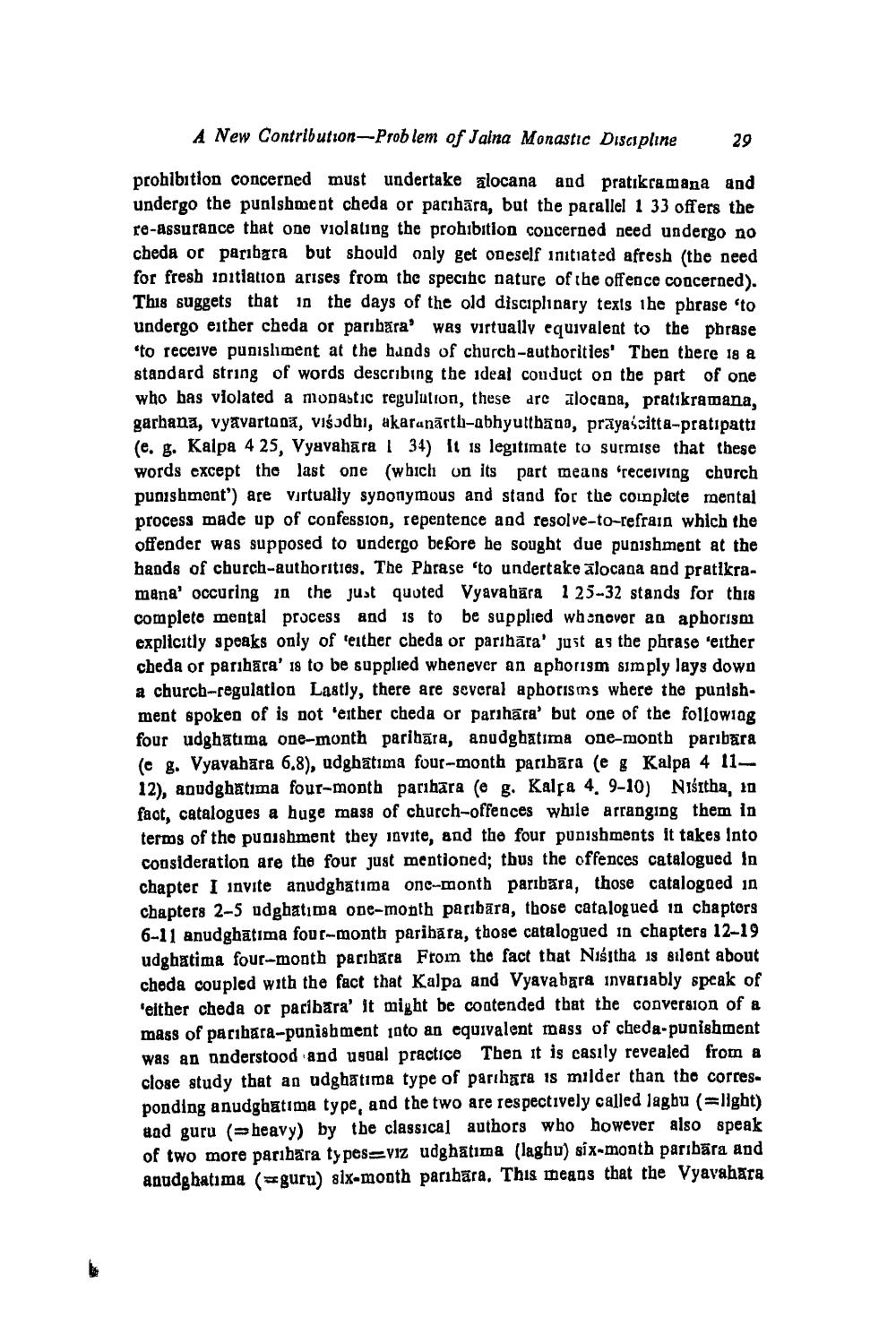________________
A New Contribution--Problem of Jaina Monastic Discipline
29
prohibition concerned must undertake locana and pratikramana and undergo the punishment cheda or pacibāra, but the parallel 1 33 offers the re-assurance that one violating the prohibition concerned need undergo no cheda oc paribara but should only get oneself initiated afresh (the need for fresh initiation arises from the specific nature of the offence concerned). This suggets that in the days of the old disciplinary texts the phrase 'to undergo either cheda or paribara' was virtually equivalent to the phrase 'to receive punishment at the hands of church-authorities' Then there 18 a standard string of words describing the ideal conduct on the part of one who has violated a monastic regulution, these are alocana, pratikramana, garhana, vyavartana, visodbi, akaranāth-abhyuttban, prayascitta-pratipatti (e. g. Kalpa 4 25, Vyavahāra 34) It is legitimate to surmise that these words except the last one (wbich on its part means treceiving church punishment) are virtually synonymous and stand for the coinpicte mental process made up of confession, repentence and resolve-to-refrain which the offender was supposed to undergo before he sought due punishment at the hands of church-authorities. The Phrase 'to undertake alocada and pratikramana' occuring in the just quoted Vyavahāra 125-32 stands for this completo mental process and is to be supplied whenover an aphorism explicitly speaks only of either cheda or parihāra' just as the phrase 'either cheda or parihara' 18 to be supplied whenever an aphorism simply lays down a church-regulation Lastly, there are several aphorisms where the punishment spoken of is not 'exther cheda or parihara' but one of the followiag four udghatima one-month parihāra, apudghatima one-month paribara (e g. Vyavahāra 6.8), udghatima four-month paribara (e g Kalpa 4 1112), apudghatima four-month parihara (e g. Kalfa 4, 9-10) Ništtha, in fact, catalogues a huge mass of church-offences while arranging them in terms of the punishment they invite, and the four punishments it takes into consideration are the four just mentioned; thus the offences catalogued in chapter I invite anudghatima one-month paribāra, those catalogged in chapters 2-5 udghatima one-month paribāra, those catalogued in chapters 6-11 anudghatima four-month paribara, those catalogued in chapters 12-19 udghatima four-month pacıbara From the fact that Niśitha is silent about cheda coupled with the fact that Kalpa and Vyavabara invariably speak of 'either cheda or paribara' it might be coatended that the conversion of a mass of paribara-punishment into an equivalent mass of cheda-punishment was an anderstood and usual practice then it is casily revealed from a close study that an udghatima type of parihara is milder than the corresponding anudghatima type, and the two are respectively called lagbu (=light) aad guru (=heavy) by the classical authors who however also speak of two more paribara types=viz udghatima (laghu) six-month paribara and anudg hatima (guru) six-month paribara. This means that the Vyavahara




